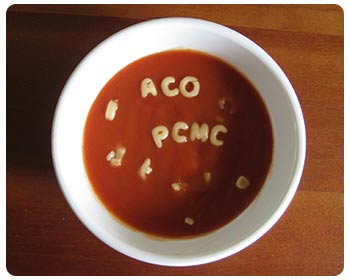The Accountable Care Organization (ACO)
Here is where the acronyms start to jumble up. Remember the PCMH is not a type of insurance or payment. It was in existence in pediatrics long before the ACA was created. We are going to start out with what I think of as the capital A, capital C, capital O. These ACOs were established in the ACA and are expressly for Medicare patients. This is not the same as Medicare Part C or Medicare Advantage Programs.
The ACO is a new payment structure created for the Medicare population as part of the ACA. The provider organization is responsible for all of the care needs for the group of enrolled patients. The outcomes in terms of quality, cost, and patient satisfaction determine payments. The ACO is complex, and we will not cover the specific details, consider this to be an overview.
The ACO goes beyond the primary care office, but the primary care practice may be the face of the ACO for the patient. Many ACOs may also be PCMH in how they chose to structure and deliver care services. Providers are NOT required to be in an ACO to see Medicare patients, this is an optional program.
Note: Private payors have created their own structures for accountable care. These plans may have very similar design to the Medicare ACO, but were not part of the ACA.
What is an ACO and how is it defined by the Centers for Medicare and Medicaid Services (CMS)?
|
"Authorized legal entity composed of a group of providers and suppliers of services (e.g., hospitals, physicians, and others involved in patient care) that will work together to manage and coordinate care for the patients they serve in original Medicare." |
According to the CMS, there are multiple models including group practice arrangements, networks of individual practices, partnerships or joint ventures, arrangements between hospitals and ACO professionals, hospitals employing ACO professionals.
|
Aspects of Accountable Care Organizations
In contrast, Health Maintenance Organizations (HMOs) have responsibility AND control. |
ACOs are not a panacea. In fact, some health care economists fear that the race to form ACOs could have a significant downside that would actually drive health costs up: hospital mergers and provider consolidation. By becoming integrated systems, many ACOs are joining forces to buy physician practices, leaving fewer independent hospitals and doctors which could lead to greater market power and more leverage in negotiations with insurers (which could potentially increase health costs.)


